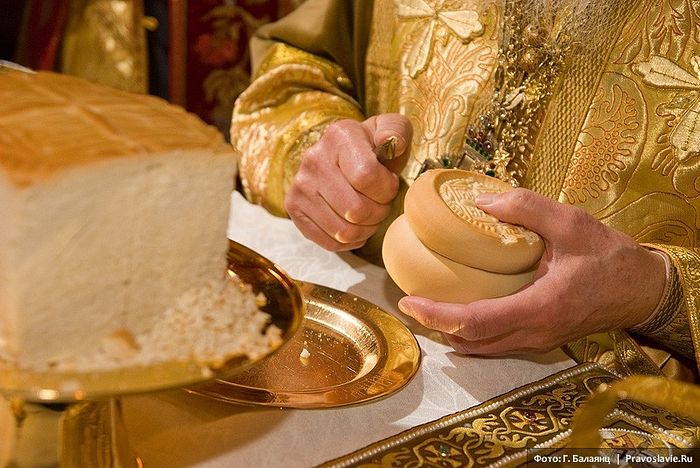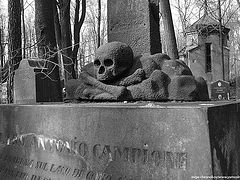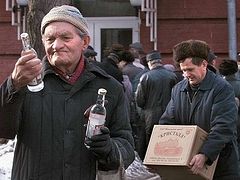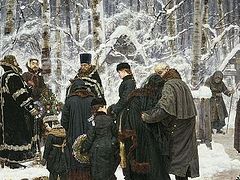In Great Lent, a period of intensified prayer, the Church does not forget to pray for its departed children, because the driving force of prayer—love—overcomes all obstacles of time and space, not stopping even before the boundary of eternity, passing between the Church Militant and the Church Triumphant. The following instance that took place at the end of the twentieth century in one Greek diocese is a clear confirmation of this.
The bishop who told this story is still alive. It is genuine and has profound significance, because it speaks of the prayers of the living for the departed. God always hears these prayers, especially during the Divine Liturgy.
In the diocese of this bishop whom we have mentioned, there was a Papa Ioannis serving—a devout priest loved by all. He would somewhat linger during the proskomedia1 because he commemorated many names. But the priest had a terrible shortcoming: He loved to drink. As diligent as he was in the fulfillment of his priestly duties, so powerless was he before wine. Many implored him to overcome this passion, so unbecoming of a servant of God. The priest himself was aware of it, was furious with himself, and tried to quit drinking several times, although everything would start again within a few days.
Once, when this papouli2 had again surrendered to his passion, he went to church. Half-drunk, he exclaimed, “Blessed is the Kingdom…” and he began the Divine Liturgy. By God’s allowance, the priest slipped in the altar and dropped the Precious Gifts from his hands. He froze with horror! Dropping to the floor, he began to gather the Body and Blood of Christ with his tongue. He was choked with guilt, because it happened because of his intoxication.
The priest went to the bishop and confessed his terrible sin to him. The next day, the bishop, after much thought, sat down at the table and took a pen: He had to begin the process of defrocking Fr. Ioannis. The bishop’s hand was lingering in indecision when he beheld as if in a vision how thousands of people were coming out of the walls of the room. There was a burning pain in their eyes. Passing by the bishop, they cried out, “No, Vladyka, do not punish this priest! Do not defrock him! Forgive him!”
An endless stream of people passed in front of the bishop: men, women, children, well-dressed and poor—an entire demonstration of souls! And they all stretched out their hands to the bishop and cried out, imploring, “No, Your Grace, don’t do this; don’t expel our papouli! He remembers us and helps us at every Liturgy; he truly takes pity on us; he is our friend! Don’t remove him from his dignity! No, no, no!!!”
The vision continued for a long time. The stunned bishop watched the sea of faces pleading for the drunken priest. He realized that they were the souls of the reposed whom Fr. Ioannis commemorated at the Liturgy. And this commemoration greatly alleviates their lot, like water given to the thirsty in the summer heat. “This is a clear testimony that our prayers assuage the souls of the reposed,” the bishop thought.
He called for the priest.
“Fr. Ioannis, tell me, when you serve the Liturgy, do you commemorate a lot of names at proskomedia?”
“Hundreds of names, Your Grace. I haven’t counted them.”
“Why do you remember so many names and delay the Liturgy?” the bishop asked, as if angry.
“I pity the departed: They have no other help but the prayers of the Church. Therefore, I ask the Most-High to grant them rest. I have a book where I record all the names that are given to me for commemoration. I inherited this practice from my father, who was also a priest.”
“You do well,” the bishop agreed. “Their souls need it. Continue doing this. Just be careful, and don’t drink anymore—not a drop of wine, starting tomorrow! Such is your penance! You are forgiven.”
From that day, Fr. Ioannis was truly freed completely from the passion of drunkenness. And now he stands even longer at the proskomedia, commemorating the names of the departed.
From the book Miracles and Revelations of the Divine Liturgy,
published by Paraclete Monastery (Oropos-Attica), 2012.





